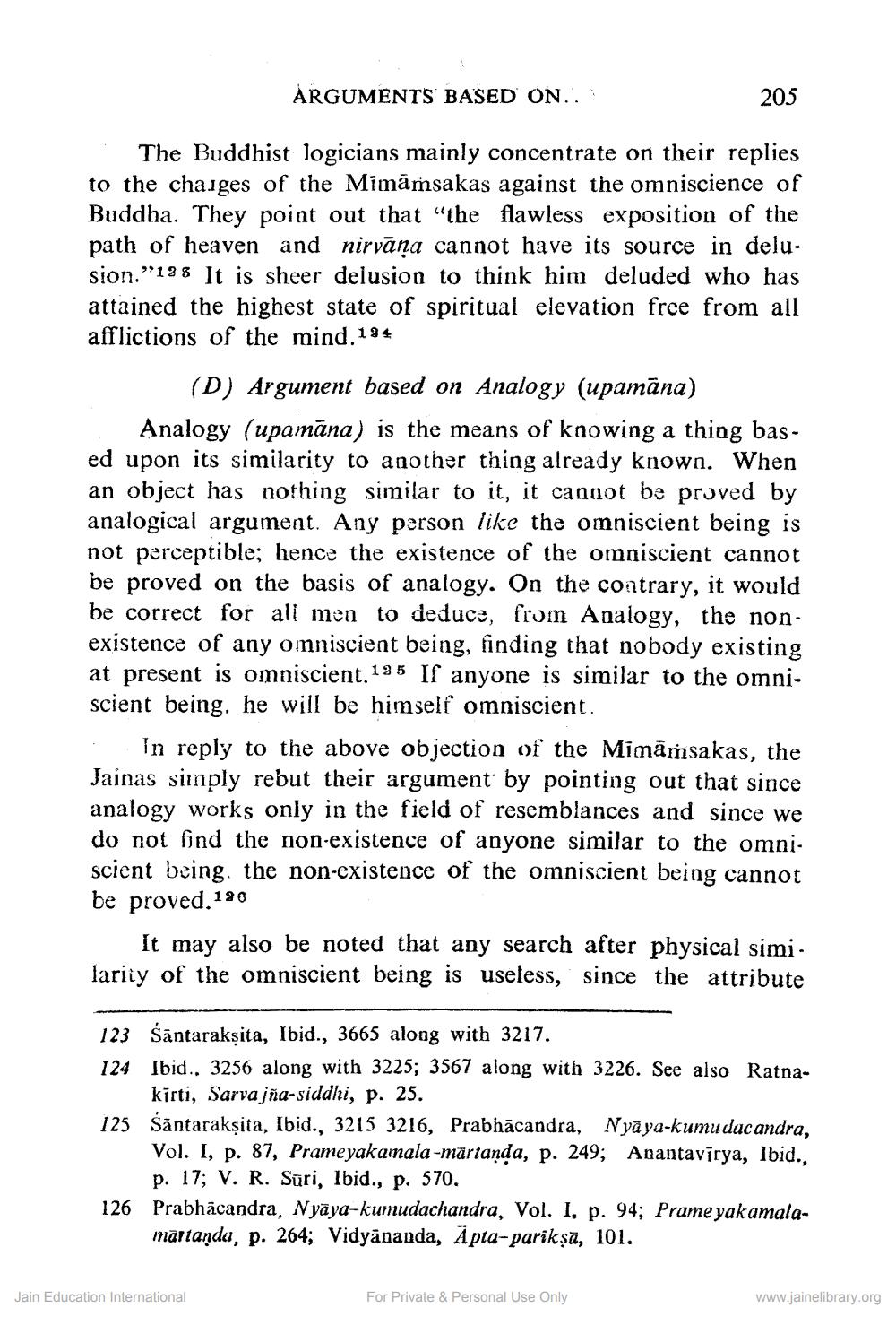________________
ARGUMENTS BASED ON..!
205
The Buddhist logicians mainly concentrate on their replies to the changes of the Mimāmsakas against the omniscience of Buddha. They point out that "the flawless exposition of the path of heaven and nirvāṇa cannot have its source in delusion."135 It is sheer delusion to think him deluded who has attained the highest state of spiritual elevation free from all afflictions of the mind.134
(D) Argument based on Analogy (upamāna) Analogy (upamāna) is the means of knowing a thing based upon its similarity to another thing already known. When an object has nothing similar to it, it cannot be proved by analogical argument. Any person like the omniscient being is not perceptible; hence the existence of the omniscient cannot be proved on the basis of analogy. On the contrary, it would be correct for all men to deduce, from Analogy, the nonexistence of any omniscient being, finding that nobody existing at present is omniscient. 135 If anyone is similar to the omniscient being, he will be himself omniscient.
in reply to the above objection of the Mināmsakas, the Jainas simply rebut their argument by pointing out that since analogy works only in the field of resemblances and since we do not find the non-existence of anyone similar to the omniscient being the non-existence of the omniscient being cannot be proved. 196
It may also be noted that any search after physical simi. larity of the omniscient being is useless, since the attribute
123 śāntarakṣita, Ibid., 3665 along with 3217. 124 Ibid., 3256 along with 3225; 3567 along with 3226. See also Ratna
kirti, Sarva jña-siddhi, p. 25. 125 Santaraksita, Ibid., 3215 3216, Prabhācandra, Nyāya-kumu dacandra,
Vol. I, p. 87, Prame yakamala-martanda, p. 249; Anantavīrya, Ibid.,
p. 17; V. R. Sūri, Ibid., p. 570. 126 Prabhācandra, Nyāya-kumuachandra, Vol. I, p. 94; Prame yakamala
martanda, p. 264; Vidyananda, Apta- pariksā, 101.
Jain Education International
For Private & Personal Use Only
www.jainelibrary.org




